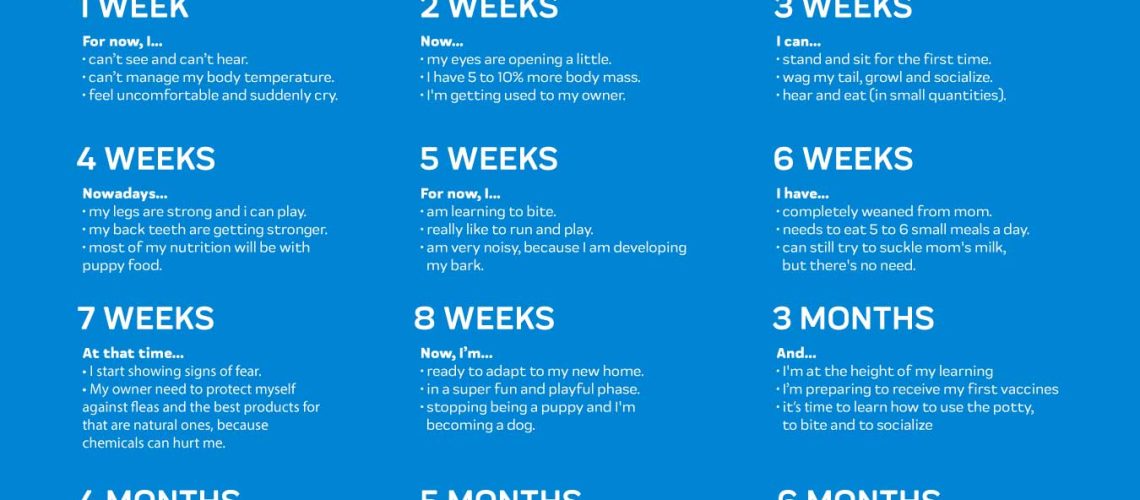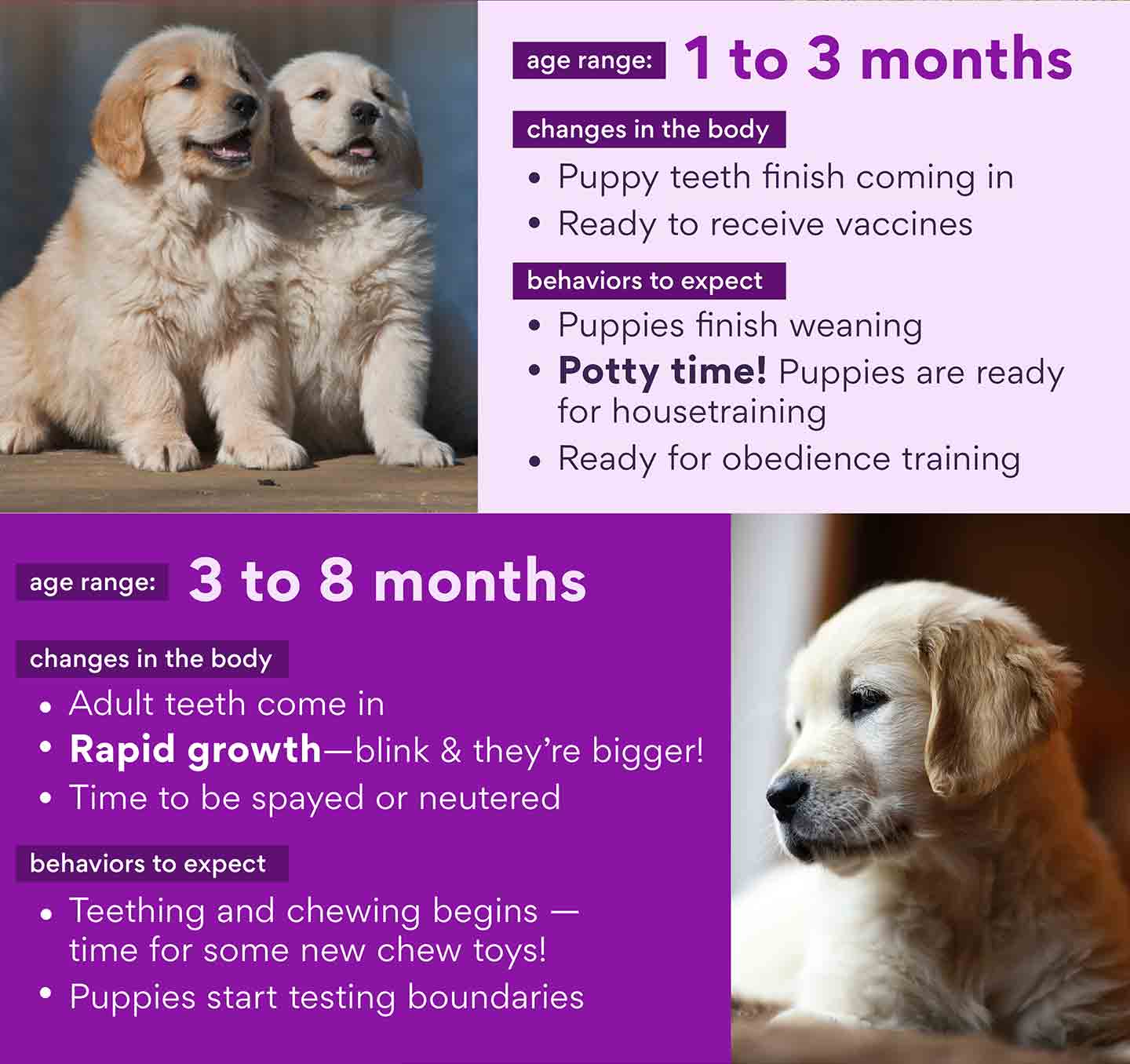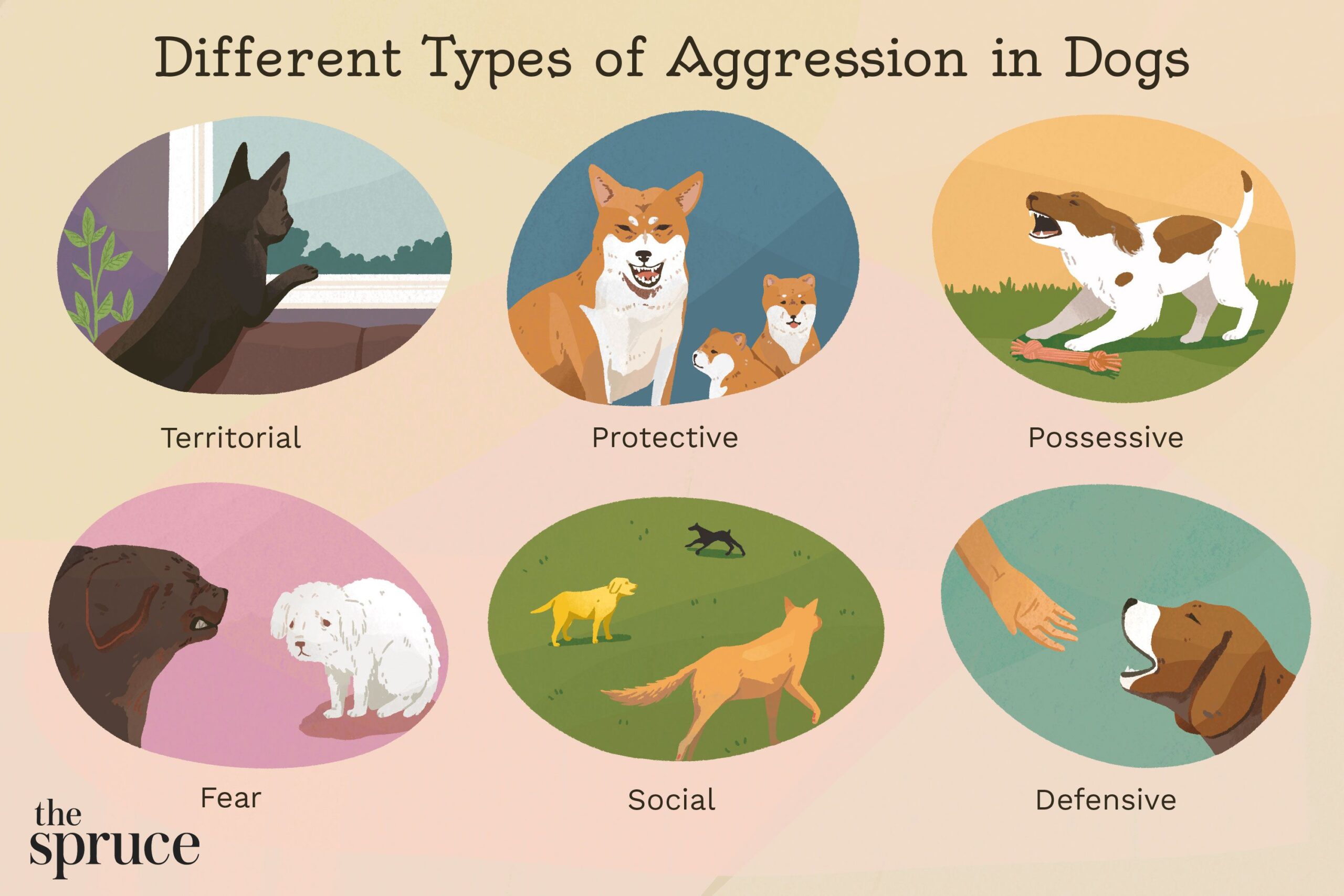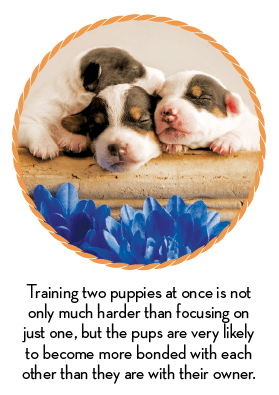This article explores the crucial stages of puppy development between 3 to 6 months, shedding light on the physical and behavioral changes that occur during this period.
Key Takeaways:
- During the 3 to 6 month period, puppies experience rapid growth and development both physically and mentally.
- Puppies at this stage are highly impressionable and should be exposed to a variety of positive experiences to promote socialization and prevent fear or aggression issues later in life.
- Consistent training is crucial during this period as puppies are more receptive to learning new commands and behaviors.
- Proper nutrition is essential for healthy growth, so it's important to feed your puppy a balanced diet that meets their specific nutritional needs.
- Puppies may start losing their baby teeth during this period, so providing appropriate chew toys can help alleviate discomfort and prevent destructive chewing behavior.
Important Milestones in a Puppy's Development from 3 to 6 Months
During the period of 3 to 6 months, puppies go through important developmental milestones that shape their growth and behavior. One significant milestone is the eruption of permanent teeth, as puppies start losing their baby teeth and adult teeth begin to come in. This can cause discomfort for the puppy, leading them to chew on objects more frequently. It's essential to provide appropriate chew toys to alleviate their teething discomfort.
Another milestone during this stage is the rapid growth of a puppy's body. They will experience an increase in height, weight, and muscle development. It's crucial to monitor their diet during this time to ensure they receive proper nutrition for healthy growth. Regular visits to the veterinarian are essential for monitoring their overall health and development.
Socialization is also an important milestone during this stage. Puppies become more curious about their surroundings and may show fear or anxiety towards new experiences or people. It's crucial to expose them gradually and positively to different environments, sounds, and people to help them develop confidence and reduce fearfulness later in life.
Physical Growth Changes in Puppies from 3 to 6 Months
Between 3 to 6 months of age, puppies undergo significant physical growth changes. They will experience a noticeable increase in size as they gain height and weight rapidly. Their bones are still growing and becoming stronger, which means they need a balanced diet rich in nutrients like calcium for bone development.
A puppy's muscles also develop during this time as they become more active and engage in playtime activities. Regular exercise is vital for building strong muscles while promoting overall fitness. However, it's important not to over-exercise young puppies as their joints are still developing and excessive strain can lead to long-term issues.
Additionally, a puppy's coat may start to change during this stage. Some breeds may experience a shedding phase as their adult coat starts to come in. Regular grooming and brushing can help manage shedding and keep their coat healthy and shiny.
Key Behaviors of Puppies between 3 and 6 Months
Puppies between 3 and 6 months exhibit several key behaviors that are important to understand for their proper care and training. One common behavior is increased exploration and curiosity. Puppies become more adventurous during this stage, sniffing around, investigating new objects, and exploring their environment. It's important to provide them with safe spaces to explore while ensuring they are supervised to prevent any accidents or ingestion of harmful substances.
Another behavior seen in puppies at this age is teething. As mentioned earlier, puppies start losing their baby teeth and adult teeth begin to emerge. This can lead to discomfort, irritability, and excessive chewing behavior. Providing appropriate chew toys can help redirect their chewing urges onto safe objects rather than your furniture or personal belongings.
Puppies also develop social behaviors during this time. They may show fear or anxiety towards new experiences or strangers. It's crucial to expose them gradually to different people, environments, and situations in a positive manner to build confidence and reduce fearfulness later in life.
How to Help Your Puppy with Socialization during this Stage
Socialization plays a vital role in shaping a puppy's behavior and overall temperament. During the period of 3 to 6 months, it's essential to focus on positive socialization experiences for your puppy.
Expose your puppy gradually:
- Introduce your puppy to various environments such as parks, streets, or pet-friendly stores.
- Expose them to different sounds like vacuum cleaners, doorbells, or car horns.
- Introduce them to people of different ages, genders, and appearances.
Positive reinforcement:
Reward your puppy with treats, praise, and affection when they display calm and confident behavior in new situations. This helps them associate positive experiences with new environments or people.
Puppy classes:
Consider enrolling your puppy in a reputable puppy training class. These classes provide controlled socialization opportunities with other puppies and professional guidance on proper behavior and obedience training.
Consistency:
Be consistent in exposing your puppy to new experiences and maintaining a positive environment. Regular socialization activities should be part of their routine to ensure ongoing development and confidence building.
The Importance of Training and Guidance for Puppies at this Stage
Training and guidance are crucial during the 3 to 6-month stage of a puppy's development. This is the period where they are most receptive to learning and forming habits that will shape their future behavior.
Housetraining is an essential aspect of training during this stage. Consistent reinforcement of good bathroom habits helps establish a routine for your puppy and prevents accidents inside the house. Positive reinforcement techniques such as treats, praise, and rewards can be used to encourage desired behaviors.
Obedience training is also important at this stage. Teaching basic commands like "sit," "stay," and "come" helps establish clear communication between you and your puppy. Positive reinforcement methods work best for obedience training as they motivate puppies to respond willingly rather than out of fear or coercion.
Gentle guidance should be provided when correcting unwanted behaviors such as excessive chewing or jumping up on people. Redirecting their attention to appropriate toys or teaching them alternative behaviors can help shape their behavior in a positive way.
Common Health Concerns for Puppies from 3 to 6 Months
Puppies between 3 and 6 months are susceptible to certain health concerns that require attention and proper care. One common concern is parasitic infections, including fleas, ticks, and intestinal worms. Regular preventive measures such as flea/tick treatments and deworming medications are essential to keep your puppy healthy.
Dental health is another important aspect of puppy care during this stage. The eruption of permanent teeth may cause discomfort or lead to dental issues if not properly cared for. Regular brushing with a dog-friendly toothpaste and providing appropriate chew toys can help maintain good dental hygiene.
Additionally, vaccinations play a vital role in protecting puppies from infectious diseases. Ensure your puppy receives all necessary vaccinations according to the recommended schedule provided by your veterinarian.
Nutrition Tips for Healthy Growth in Puppies during this Period
A balanced diet is crucial for the healthy growth and development of puppies between 3 and 6 months. Here are some nutrition tips to ensure your puppy receives the necessary nutrients:
High-quality puppy food:
Choose a high-quality commercial puppy food that is specifically formulated for their age and breed size. These foods provide the right balance of proteins, fats, carbohydrates, vitamins, and minerals needed for optimal growth.
Feeding schedule:
Establish a regular feeding schedule with measured portions based on your puppy's age, weight, and activity level. Avoid free-feeding or leaving food out all day as it can lead to overeating or inconsistent eating habits.
Avoid overfeeding treats:
Treats are an important part of training and positive reinforcement, but it's essential to avoid overfeeding them. Treats should only make up a small portion of your puppy's daily calorie intake to prevent excessive weight gain.
Consult with your veterinarian:
Your veterinarian can provide personalized advice on the specific nutritional needs of your puppy based on their breed, size, and any underlying health conditions. Regular check-ups allow for monitoring their growth and adjusting their diet if necessary.
Beneficial Exercises and Activities for Puppies in this Age Range
Regular exercise is vital for the physical and mental well-being of puppies between 3 and 6 months. Here are some beneficial exercises and activities that can keep your puppy active and engaged:
Playtime:
Engage in interactive play sessions with toys such as balls, ropes, or puzzle toys that stimulate their mind and encourage physical activity.
Short walks:
Take your puppy for short walks in safe areas to help them explore the world around them while getting exercise. Start with shorter distances and gradually increase as they build stamina.
Puppy socialization classes:
Enroll your puppy in supervised socialization classes where they can interact with other puppies in a controlled environment. This allows them to learn appropriate social skills while burning off energy through play.
Mental stimulation:
Incorporate mentally stimulating activities such as obedience training, puzzle toys, or hide-and-seek games to keep your puppy mentally engaged. Mental stimulation is just as important as physical exercise for their overall development.
Tips for Creating a Safe and Stimulating Environment for Your Growing Puppy
Creating a safe and stimulating environment is crucial for providing optimal care and development for your growing puppy. Here are some tips to ensure their environment is suitable:
Puppy-proofing:
Remove any potential hazards or toxic substances from areas accessible to your puppy. This includes securing electrical cords, keeping household chemicals out of reach, and blocking off areas that may pose a danger.
Provide appropriate toys:
Offer a variety of safe and durable chew toys to satisfy their teething needs and redirect their chewing behavior away from inappropriate items.
Create designated spaces:
Designate specific areas in your home for your puppy's bed, food, water, and playtime. This helps establish routines and boundaries while providing them with a sense of security.
Maintain a consistent schedule:
Establish a regular routine for feeding, exercise, playtime, and sleep. Puppies thrive on consistency and predictability, which helps them feel secure in their environment.
Supervise interactions:
Always supervise interactions between your puppy and other pets or young children to ensure everyone's safety. Teach children how to handle the puppy gently and respectfully.
| Conclusion | |
| Age Range | Puppy Development Milestones |
| 3 to 4 months | Teething, socialization, basic training introduction |
| 4 to 5 months | Increase in physical abilities, advanced training techniques, continued socialization |
| 5 to 6 months | Adolescence begins, increased independence, further obedience training and mental stimulation required |
During the crucial period
What is the hardest puppy age?The adolescent period is the most difficult time when raising a puppy. Dogs enter their "teenage" phase and appear to have forgotten all their training. This period varies for each dog, but typically starts around eight months old and lasts until they reach two years old. What changes in a puppy at 3 months?Between the ages of 3 and 6 months, puppies experience significant physical and behavioral changes such as reaching their adult size, teething, and developing fear of unfamiliar environments and people. It is important to be ready to provide care for your puppy during this important stage of development. Puppies are usually placed in homes between 8 and 12 weeks old. What is the rebellious stage of a puppy?Similar to humans, dogs experience a period of rebellion known as their "teenager" phase, which typically lasts from 5 months to 18 months. During this time, they may challenge their owners and push boundaries to see what they can get away with. It is important to maintain a firm and consistent approach to training during this stage in order to establish clear boundaries. What is bad behavior in a 4 month old puppy?Problematic behaviors like barking, chewing, counter surfing, house-soiling, and jumping up usually start appearing when puppies are between 3 and 6 months old. It's important to note that these behaviors won't simply go away on their own. In fact, if not addressed early on, they are likely to become more severe. At what age are puppies the naughtiest?At around 4-5 months old, puppies can become mischievous and start to ignore your commands. They have figured out how to manipulate you and it may initially seem amusing, but it can quickly become frustrating. At what age can you tell a puppy's temperament?It is recommended to conduct temperament tests on a puppy when they are 7 weeks old. However, it is important to understand that the results of the test may differ if the puppy is retested at 3 or 4 months old. This is because the puppy's brain, socialization factors, and early experiences will have further developed by that time.
More Reads
Dr. Clara Bennett
Hello, fellow pet enthusiasts! I'm Dr. Clara Bennett, your go-to expert on all things pets. With a background in veterinary medicine and a passion for nutrition, I've spent years diving deep into the world of cats, dogs, birds, horses, and the products that keep them thriving. From the English countryside, I've witnessed the magic of animals and am here to share my knowledge, ensuring your pets receive the best care. Together, let's master the art of pet care!
All Posts »
Next Steps In Mastering Cat CareNext Steps In Mastering Dog CareJoin Our NewsletterSubscribe to receive our latest updates in your inbox! | |
















